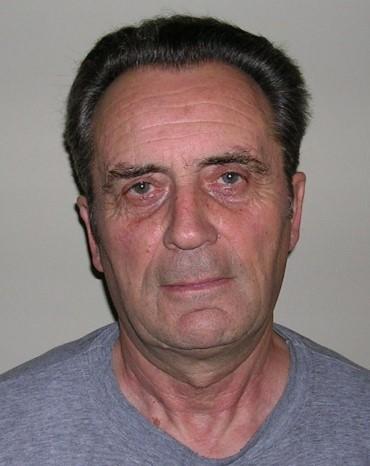Daniel Comboni
Comboni Missionaries
Institutional area
Other links
Newsletter
In Pace Christi
Weeger Franz
On the morning of the day Father Franz Weeger died, last 31st March, in the community we spontaneously sang the invitatory psalm (Ps 94) at the beginning of our morning prayer. Franz particularly liked this psalm, especially the second verse: «A mighty God is the Lord... In his hands are the depths of the earth, the heights of the mountains are his».
Among the fantastic peaks of the Andes, “Padre Pancho” – as the people called him, using a diminutive of Francisco – lived for more than 50 years... and always “in the heights”, between 2,800 and 4,500 metres. Those mountains, whose peaks reach the sky and speak more than any other creature of the incredible artistic imagination of the Creator, have always been dear to him.
Franz was born on 13th April 1939, in Gern, a tiny fraction of the city of Ornbau, in the district of Ansbach (Bavaria). [Ornbau was the cradle of many Comboni vocations, including Msgr. Lorenzo Unfried Gimpel (1919-1988), initially Auxiliary Bishop of Arequipa (1969-1979) and then Bishop of Tarma (1980-1988), in Peru, and Father Rudolf Friedl, a long-time missionary in South Africa].
At the age of 11, Franz entered the Comboni Seminary of Ellwangen. On 1st July 1959, he began his novitiate in Mellatz, which he concluded a year later with temporary vows. In July 1960 he began his scholasticate in Bamberg. On 5th February 1965, he made his perpetual profession and on 6th March 1966, he was ordained a priest. Six months later, he was already in Peru, in Tarma, the centre of the homonymous diocese. In March 1967, he was assigned to the parish of Cerro de Pasco, as pastor. The altitude of 4,500 meters did not bother him. Indeed, he immediately felt at home with it. And he remained there until June 1973, when he moved to the city of Junín, again as parish priest, dedicating himself to the pastoral care of both the city and the surrounding villages, for more than 12 years.
In 1985, he returned to his dear mountains of Cerro de Pasco, where he stayed for three years. From 1989 to 1993, he was involved in ministry in Tarma, at the cathedral. In 1994 he was assigned to the parish of Yanahuanca, where he remained until 2003.
Wherever he went, he was appreciated for his dedication to pastoral care and his concern for people. His somewhat brusque character did not prevent him from forming good relationships with everyone.
From the beginning of 1999 to December 2004, Father Pancho was also a provincial councillor. In this role, he offered invaluable contributions to the province, thanks to his profound knowledge of the history of Peru and of the Comboni presence in the country. His reasoning and suggestions were always well received.
In 2004, he was assigned to the parish of Huánuco, where he threw himself into rural pastoral care, especially in the areas of Margos and Chaulan. But slowly, his health forced him to abandon visits to the villages and communities scattered throughout the vast parish and to limit himself to helping out at the parish church of San Pedro.
The outbreak of the Covid-19 pandemic, with the obligation of isolation, weighed heavily on him, even becoming unbearable. His health continually deteriorated. In February 2023, he was forced to resign and asked to be taken to the provincial residence in Lima. He told everyone: “That’s my last stop.” On 3st March, he died surrounded by the love and prayers of the confreres.
I spent the years of minor seminary, novitiate and scholasticate with him. In Peru, we were assigned to different missions and parishes, but I was lucky enough to share a few years with him as members of the same provincial council. I have to admit that in him I always found a faithful and generous companion... and always able to surprise me. When the era of digital means of communication arrived, for example, he was immediately interested, becoming enthusiastic and in a short time becoming an expert user of these powerful instruments of the apostolate.
I am sure that those who, like me, have had the good fortune to know him, thank God for the gift of his life, for his dedication shown in the many years spent in the Andes, and for the friendship that always showed towards us. shown. (Father Alois Weiss, mccj)

